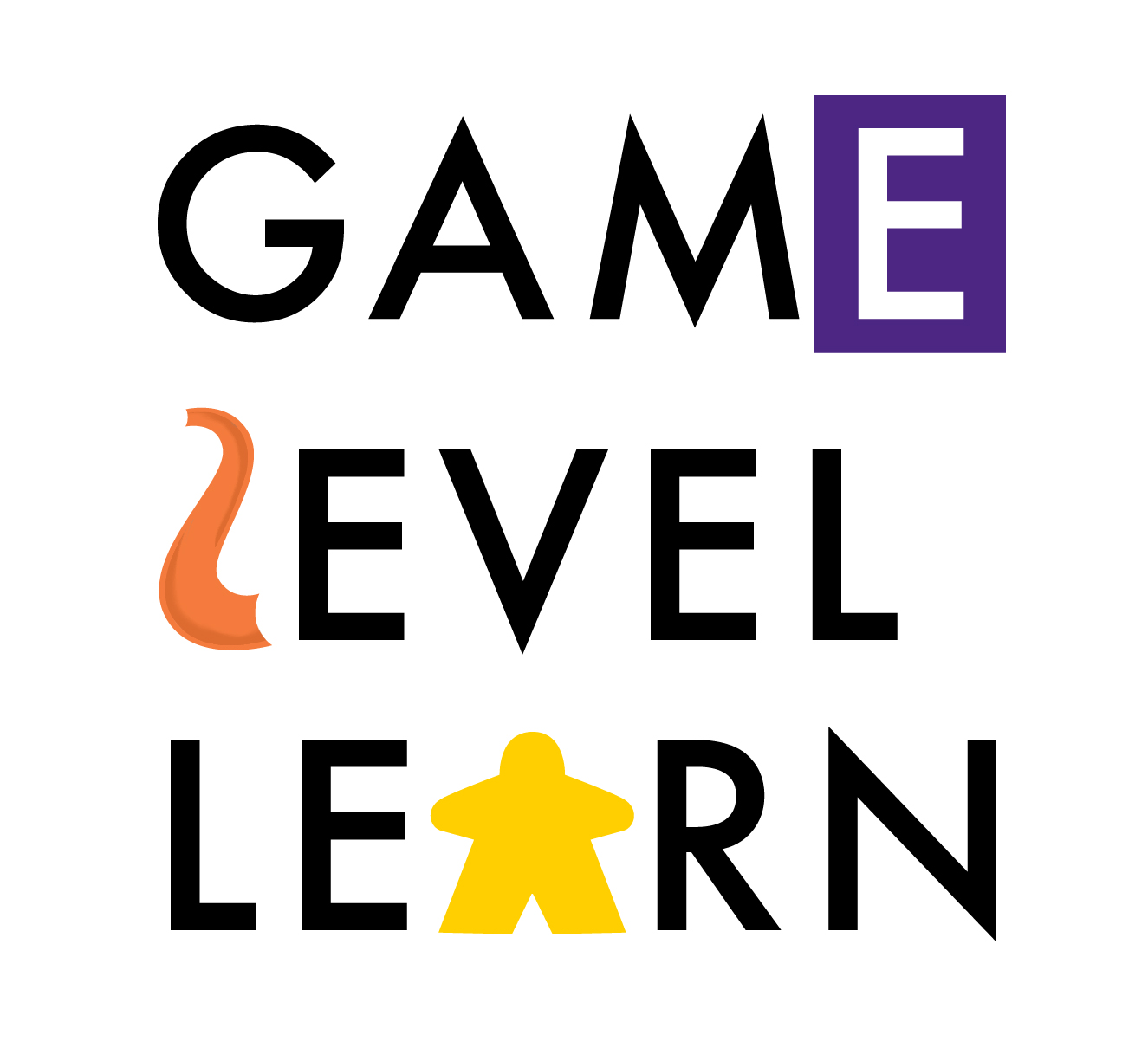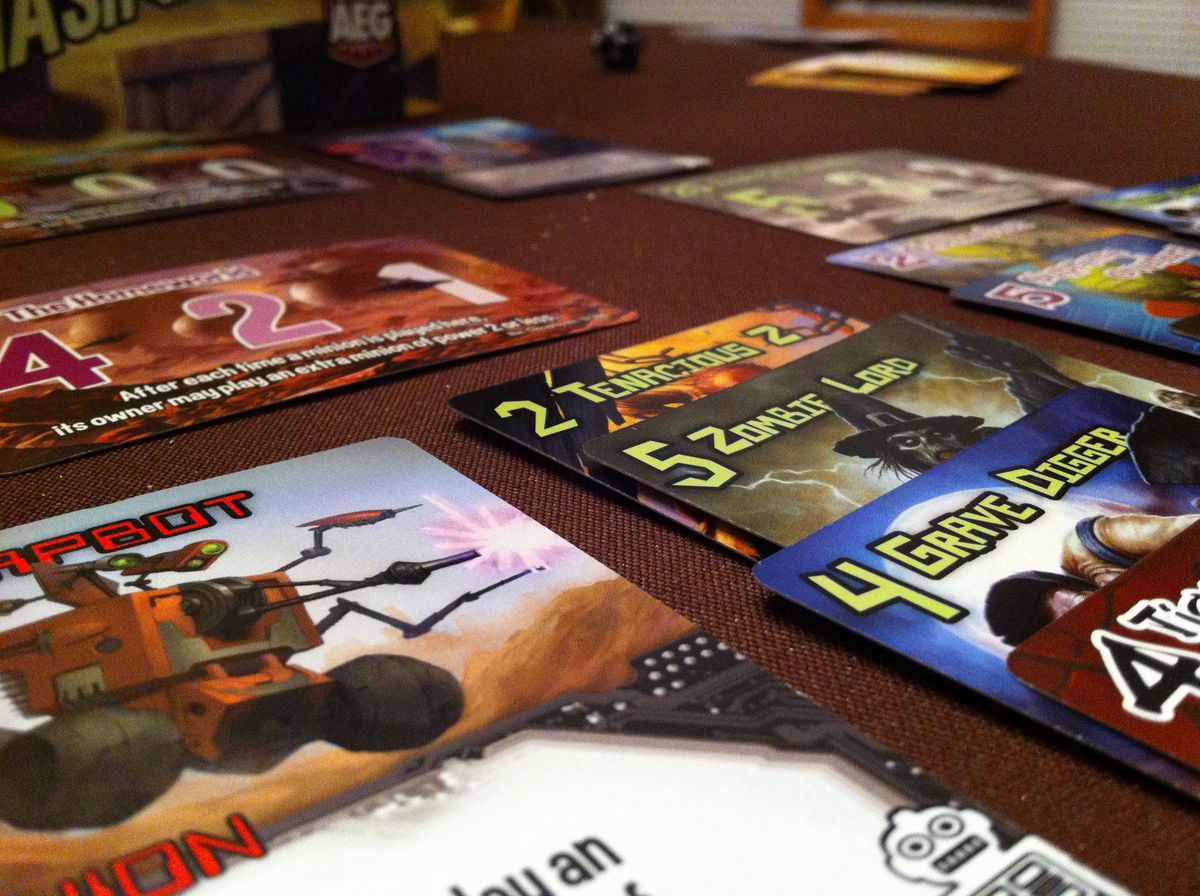51 Mechanics: Take That!
/BoardGameGeek (BGG) is a singular repository of gaming information, knowledge and wisdom that has been serving the modern board game hobby since 2000. I consult it regularly and have used its database to manage my own game collection. I also used it when I was writing my 2016 book on gamified instruction, particularly with regard to the game mechanics that BGG identified and organized content into. While there are more than 85,000 games, even now, there are just 51 mechanics. Since every mechanic offers something to the teacher who wants to use games in the classroom, I'm going to use this section of Game Level Learn and my own contributions to it to assess games from each of these 51 mechanics. Next up?
The Take That! mechanic is interesting because it directly places the players in opposition to each other to accomplish some kind of goal. It's not quite the same as a game that's merely competitive, however. Rather, in this kind of game, players' actions cause pieces/cards/equipment belonging to the other player or players to be removed from the board or to be segregated/de-powered in some way. For gamifying teachers, using this mechanic is probably a terrible idea for younger students, and using it as a primary mechanic is probably not a good idea as anything other than providing a little competitive flavor. These games are great fun and for the right player, they're just about perfect. But for those who either don't want to have their game materials messed with, or who don't want to do the messing around, it's probably best to stay clear of this mechanic.
Android: Mainframe (BGG Rank: 1724)
Mainframe, a game set in the Android universe, is a game where you take on the role of a computer hacker breaking into the server of a corporation. You are trying to establish control over that server to the detriment of your fellow "runners." This is a very fun abstract strategy game (the abstract strategy field often has a bit of the Take That! about it) that would be great out of the box for teaching abstract thinking.
Baseball Highlights: 2045 (BGG Rank: 368)
Sports simulation games are not as thick on the field as one might suspect, and good ones are even rarer still. Baseball Highlights: 2045 speculates about the future of baseball where there are three kinds of players: naturals, cyborgs and robots. Each type of player is good at one aspect of the game and not so good at some other aspect. Gameplay in BH: 2045 is abstracted with one of the critical game mechanics being the removal of your opponents' cards from the field of play so they don't allow the opponent to get base hits or score runs.
Lords of Waterdeep (BGG Rank: 51)
A very popular Worker Placement game, Lords of Waterdeep is a complete game setting in the Dungeons&Dragons campaign milieu Forgotten Realms. Set in the city of Waterdeep, players take actions that help them advance their control of or access to certain city resources. Quest-based, this game is a nice introduction to the Worker Placement mechanic and to the Take That! mechanic, but is more complicated than some of the other games in this list.
Magic: The Gathering (BGG Rank: 156)
The game that started the collectible card game revolution in the early 1990s, Magic: The Gathering is, on its leading edge, laughably complicated. But it is accessible to casual players and in that form, it is one of the best games to introduce game-based critical thinking to young learners. The combinations of mana, spells and actions combine to make Magic one of the greatest games invented in the last 50 years. A justifiable classic, but for new players, just buy a couple of basic starter decks and proceed...don't worry about the vexing complexity. All in time!
Smash Up (BGG Rank: 630)
Good, zany fun is the order of the day with Smash Up. In this game, you take two decks of twenty cards, each representing some pop culture archetype (Killer Plants!, Sparkle Ponies!) and shuffle them together to form a team of ridiculous awesomeness. Your goal is to score victory points by conquering bases. The Take That! mechanic is the central mechanic of this game, but it is very easy to learn, plays fast and is so over the top in its silliness that it's hard to get too worked up about losing.
Cover image from: [https://www.boardgamegeek.com/image/1518578/smash]


